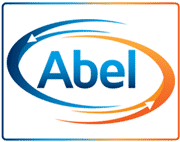Energy Efficient Heat Pumps
Heat pumps may not be as familiar to you as an air conditioner or a furnace, but they can be an important energy-saving device in a home’s HVAC system.
Many homeowners are considering heat pumps now, thanks to the passage of the Inflation Reduction Act in August 2022. As part of this act, homeowners can now take advantage of the Energy Efficient Home Improvement Credit and the High Efficiency-Electric Home Rebate Program to offset a portion of the costs of installing a heat pump.
Here’s how heat pumps work and why you should add one to your home.
What Is a Heat Pump?
Heat pumps move air through an HVAC system, bringing warm or cool air (as needed) to all parts of a home. Unlike furnaces, which lose some heat during the burning of fuel such as oil or natural gas to produce heat, a heat pump does not lose energy during the process of moving air. Instead, heat pumps use electricity to make cool spaces warm (and warm spaces cool).
There are three types of heat pumps:
- Air-to-air
- Water source
- Geothermal
Most homeowners opt for air-to-air heat pumps, which circulate air throughout the home and outside. These electrically-powered devices can reduce electrical heating costs by up to 50%, according to the U.S. Government website, and are more efficient than air conditioners and electrical furnaces or baseboard heaters. Plus, high efficiency heat pumps also dehumidify indoor air, doing a better job at it than standard air conditioners and saving considerable money during the summer months by using less electricity to run AC units.
Are Heat Pumps Good for Cold Climates?
The key to using heat pumps in cold climates is choosing the right one.
According to a study by the Northeast Energy Efficiency Partnerships, when units designed specifically for colder regions were installed in the Northeast and Mid-Atlantic regions, the annual savings was approximately 3,000 kWh (or $459) when compared to electric resistance heaters. When compared to oil heating systems, it saved 6,200 kWh (or $948). When displacing oil (i.e the oil system remains, but operates less frequently), the average annual savings was about 3,000 kWh (or about $300).
Should You Install Only Heat Pumps?
While it’s possible to heat or cool your home using just heat pumps, many people opt for a combination of heat pumps and traditional heating and cooling systems. In some climates, the heat pump may be sufficient for several months of the year, but deep freezes or sudden heat waves may call for traditional heating or cooling methods. This is where a consultation with an Abel Heating and Cooling expert is important. We can advise you on the best method for heating or cooling your home to ensure it is always comfortable.
Tax Credits for Energy Efficient Home Improvements
The Inflation Reduction Act offers significant tax credits for homeowners who install a heat pump. For example, homeowners may receive a tax credit of up to $2,000 for the purchase of a heat pump; low-income households can get a rebate of up to $8,000 on installation starting in 2023.
Ready to Install a Heat Pump?
Heat pumps work well as part of many existing heating and cooling systems. They can save energy costs and maintain a comfortable indoor air temperature. If you’d like to speak with someone about adding heat pumps to your home, please contact Abel Onsite at 952-472-2665.
